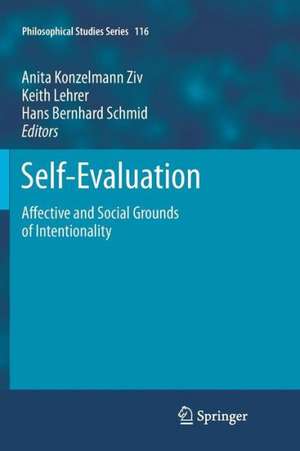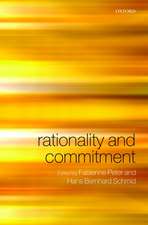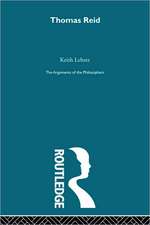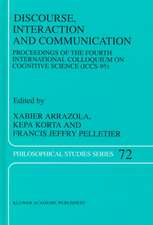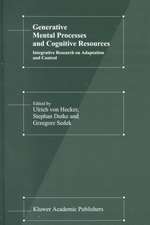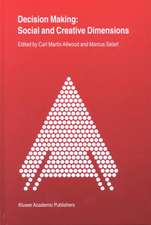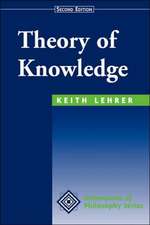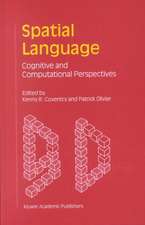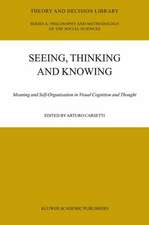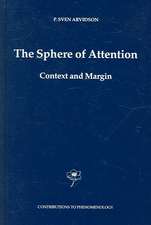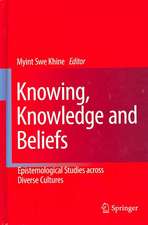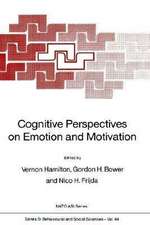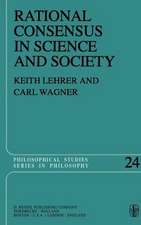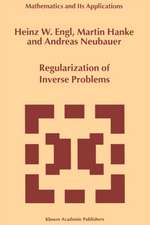Self-Evaluation: Affective and Social Grounds of Intentionality: Philosophical Studies Series, cartea 116
Editat de Anita Konzelmann Ziv, Keith Lehrer, Hans Bernhard Schmiden Limba Engleză Paperback – 2 aug 2013
| Toate formatele și edițiile | Preț | Express |
|---|---|---|
| Paperback (1) | 560.31 lei 38-44 zile | |
| SPRINGER NETHERLANDS – 2 aug 2013 | 560.31 lei 38-44 zile | |
| Hardback (1) | 646.43 lei 6-8 săpt. | |
| SPRINGER NETHERLANDS – 29 iun 2011 | 646.43 lei 6-8 săpt. |
Din seria Philosophical Studies Series
-
 Preț: 407.78 lei
Preț: 407.78 lei - 15%
 Preț: 644.95 lei
Preț: 644.95 lei - 18%
 Preț: 1120.18 lei
Preț: 1120.18 lei - 18%
 Preț: 1005.43 lei
Preț: 1005.43 lei - 15%
 Preț: 640.06 lei
Preț: 640.06 lei -
 Preț: 381.21 lei
Preț: 381.21 lei -
 Preț: 391.61 lei
Preț: 391.61 lei - 15%
 Preț: 640.88 lei
Preț: 640.88 lei - 15%
 Preț: 639.25 lei
Preț: 639.25 lei - 18%
 Preț: 1221.51 lei
Preț: 1221.51 lei - 18%
 Preț: 947.18 lei
Preț: 947.18 lei - 18%
 Preț: 955.56 lei
Preț: 955.56 lei - 18%
 Preț: 950.96 lei
Preț: 950.96 lei - 15%
 Preț: 645.47 lei
Preț: 645.47 lei - 15%
 Preț: 635.79 lei
Preț: 635.79 lei - 15%
 Preț: 644.82 lei
Preț: 644.82 lei - 18%
 Preț: 950.66 lei
Preț: 950.66 lei -
 Preț: 386.00 lei
Preț: 386.00 lei - 15%
 Preț: 644.82 lei
Preț: 644.82 lei - 15%
 Preț: 642.18 lei
Preț: 642.18 lei - 15%
 Preț: 643.48 lei
Preț: 643.48 lei - 18%
 Preț: 944.99 lei
Preț: 944.99 lei - 15%
 Preț: 638.76 lei
Preț: 638.76 lei - 20%
 Preț: 553.25 lei
Preț: 553.25 lei - 18%
 Preț: 951.29 lei
Preț: 951.29 lei - 18%
 Preț: 893.40 lei
Preț: 893.40 lei - 20%
 Preț: 566.76 lei
Preț: 566.76 lei - 18%
 Preț: 951.77 lei
Preț: 951.77 lei
Preț: 560.31 lei
Preț vechi: 700.39 lei
-20% Nou
Puncte Express: 840
Preț estimativ în valută:
107.23€ • 116.43$ • 90.07£
107.23€ • 116.43$ • 90.07£
Carte tipărită la comandă
Livrare economică 18-24 aprilie
Preluare comenzi: 021 569.72.76
Specificații
ISBN-13: 9789400736665
ISBN-10: 9400736665
Pagini: 292
Ilustrații: X, 282 p.
Dimensiuni: 155 x 235 x 15 mm
Greutate: 0.41 kg
Ediția:2011
Editura: SPRINGER NETHERLANDS
Colecția Springer
Seria Philosophical Studies Series
Locul publicării:Dordrecht, Netherlands
ISBN-10: 9400736665
Pagini: 292
Ilustrații: X, 282 p.
Dimensiuni: 155 x 235 x 15 mm
Greutate: 0.41 kg
Ediția:2011
Editura: SPRINGER NETHERLANDS
Colecția Springer
Seria Philosophical Studies Series
Locul publicării:Dordrecht, Netherlands
Public țintă
ResearchCuprins
Preface: Anita Konzelmann Ziv.- Self-Evaluation – Philosophical Perspectives.- PART I - Evaluative and Self Evaluative Attitudes.- How to Have Self-Directed Attidudes: Lynne Ruder Baker.- Interpretation, Cause and Avowal: On the Evaluative Dimension of Selfhood: Axel Seeman.- Who Do You Think You are? The How-What Theory of Character and Personality: Frederico Lauria & Alain Pé-Curto.- PART II - Self-Evaluation and Rationality.- Self-Evaluation and the Ends of Existence: Carol Rovane.- Self-Evaluation and Action: Juliette Gloor.- Self-Trust and Social Truth: Keith Lehrer.- PART III - Self-Evaluative Emotions.- Sentimentalism and Self-Directed Emotions: Jesse Prinz.- Psychopathic Resentment: John Deigh.- Self-Knowledge, Knowledge of Others, and ‘the thing called love’: Edward Hartcourt.- Is Shame a Social Emotion?: Julien Deonna & Fabrice Teroni.- PART IV – Evaluating the Social Self.- Feeling up to it – The Sense of Ability in the Phenomenology of Action: Hans Bernhard Schmid.- Self-Evaluation in Intention: Individual and Shared: Lilian O’Brien.- Where Individuals Meet Society. The Collective Dimensions of Self-Evaluation and Self-Knowledge: Ulla Schmid.- About the Authors.
Notă biografică
Anita Konzelmann Ziv is assistant profesoor at the department of philosophy, University of Geneva (Switzerland) and works on the project ''Self-Evaluation - A Quest for Wisdom''. She wrote on the role of confidence and probability in the theory of knowledge of Bernard Bolzano, and more recently on collective moral emotions and virtue epistemology. Anita Konzalmann Ziv is grantholder of the ''Bourse d'excellence UNIGE 2010''', awarded by the University of Geneve, and member of ''Thumos'', the Genevean research group on emotion, values and norm.
Keih Lehrer (Ph.D.,Brown), Regents Professor of Philosophy, concentrates on epistemology, free will, rational consensus and Thomas Reid. He has been a fellow of the National Science Foundation, the National Endowment for the Humanities, the American Council of Learned societies, the John Simon Guggenhheim Foundation, the Center for Advanced Study , University of London, and the Research School, Australian National Univversity. He is a Fellow of the American Academy of Arts and Sciences, Research Professor of the University of Miami, and Honorary Professor and Honorary Doctor of the University of Graz, Austria.
Hans Bernhard Schmid is SNF-Professor of Philosophy at the Univversity of Basel (Switzerland). He is the author of Subject, System, Diskurs - Edmund Husserls Begriff transzendentaler Subjectivität in sozialtheoretischen Bezügen (Kluwer 2000); Wir-Intentionalität - Kritik des ontologischen Individualismus and Rekonstruction der Gemeinschaft (Alber 2005); Plurar Action: Essays in Philosophy and Social Science (Springer 2009); Moralische Integrität-Kritik eines Konstrukts (Suhrkamp 2011). Hans Bernhard Schmid has been awarded the Latsis-Prize HSG 2006 for outstanding research (Latsis Foundation Geneva and U niversity of St. Gallen).
Keih Lehrer (Ph.D.,Brown), Regents Professor of Philosophy, concentrates on epistemology, free will, rational consensus and Thomas Reid. He has been a fellow of the National Science Foundation, the National Endowment for the Humanities, the American Council of Learned societies, the John Simon Guggenhheim Foundation, the Center for Advanced Study , University of London, and the Research School, Australian National Univversity. He is a Fellow of the American Academy of Arts and Sciences, Research Professor of the University of Miami, and Honorary Professor and Honorary Doctor of the University of Graz, Austria.
Hans Bernhard Schmid is SNF-Professor of Philosophy at the Univversity of Basel (Switzerland). He is the author of Subject, System, Diskurs - Edmund Husserls Begriff transzendentaler Subjectivität in sozialtheoretischen Bezügen (Kluwer 2000); Wir-Intentionalität - Kritik des ontologischen Individualismus and Rekonstruction der Gemeinschaft (Alber 2005); Plurar Action: Essays in Philosophy and Social Science (Springer 2009); Moralische Integrität-Kritik eines Konstrukts (Suhrkamp 2011). Hans Bernhard Schmid has been awarded the Latsis-Prize HSG 2006 for outstanding research (Latsis Foundation Geneva and U niversity of St. Gallen).
Textul de pe ultima copertă
This volume examines the affective and social dimensions of self-related activities. This is a novel way of approaching traditional questions such as the scope and purpose of self-knowledge, the interrelation between the social and the individual person, and the significance of emotional appraisal. Focusing on self-evaluation instead of self-knowledge in shifting from a doxastic to an axiological perspective. The scientific added value created by this approach is threefold: i) it opens up a broadr perspective on the structure of self-reflection which includes a matrix of values; ii) as valauations imply a social contaxt, it extends to social relations; iii) since affective attitudes are crucial for the recognition of values, it incorparates feelings and emotions. In short, self-evaluation is a conception of self-refelection which includes sociality and affectivity.
This volume contains contributions by leading figures in philosophy of mind and action, emotion theory, and phenomenology. It allows a global view on the most recent reflections on the subject matter, being of interest for professional philosophers, as well as for researchers from various nighboring disciplines.
This volume contains contributions by leading figures in philosophy of mind and action, emotion theory, and phenomenology. It allows a global view on the most recent reflections on the subject matter, being of interest for professional philosophers, as well as for researchers from various nighboring disciplines.
Caracteristici
Provides a novel approach in the research of self-reflection, shifting the focus from knowledge to evaluation Reveals specific dependencies of self-reflection on emotional and social attitudes First collection of recent philosophical work on specifically evaluative ways of self-reflection.
